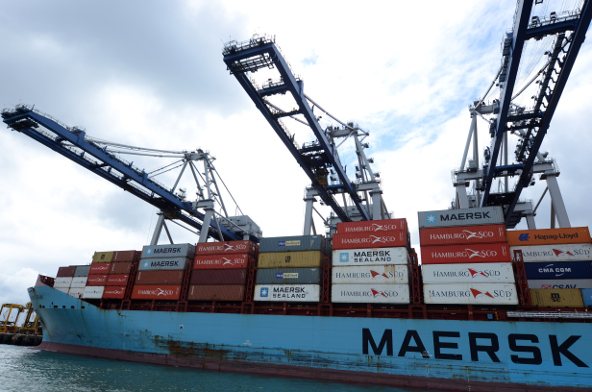
A.P. Moller-Maersk has changed the route its ships sail through the world’s busiest transit lane for seaborne oil shipments, citing safety concerns amid a rapid series of escalations between the U.S. and Iran.
A surface-to-air missile shot down a U.S. military drone in international airspace over the Strait of Hormuz.
The reported drone downing has exacerbated fears that a major military confrontation could soon erupt between Washington and Tehran.
When asked what steps A.P. Moller-Maersk had taken to protect its assets after the latest flare-up in tensions, the chief operating officer of the world’s largest shipping company said the safety of its workforce would be the top priority.
“We are protecting our assets but, first and foremost, we are protecting and being very careful when it comes to (the) safety of our employees,” Soren Toft told CNBC’s “Squawk Box Europe” on Thursday.
“We have multiple assets, ships (and) people, crossing the Strait of Hormuz every day, every week. So far, we have not stopped serving the area (but) we have changed the path that the ships sail so we have changed the route.”
‘Much more monitoring’ in the Strait of Hormuz
The Strait of Hormuz, a narrow channel situated between the borders of Iran and Oman, accounts for approximately 30% of the world’s seaborne oil traffic. It is seen as one of the most important waterways in the world, linking crude producers in the Middle East with key markets in the rest of the world.
Attacks on two oil tankers in the Gulf of Oman last week and on four tankers off the United Arab Emirates in mid-May, both near the Strait of Hormuz, has ratcheted up concern about the prospect of a military confrontation.
The U.S. and Saudi Arabia, a regional ally to Washington, blamed Iran for the incidents. Tehran has denied responsibility.
Tensions have spiked between the U.S. and Iran since President Donald Trump’s administration withdrew from the 2015 nuclear deal and reinstated sweeping sanctions on the Islamic Republic.
“We have much more monitoring going on,” Toft said, before adding the firm was not “calling Iranian ports.”
“We are also in a situation where we operate a so-called bus service contrary to the tankers which is more of a taxi or a tram situation. So, we are following a specific path and so far we are serving the customers.”
